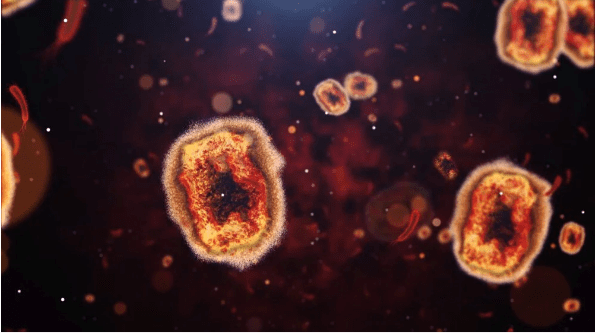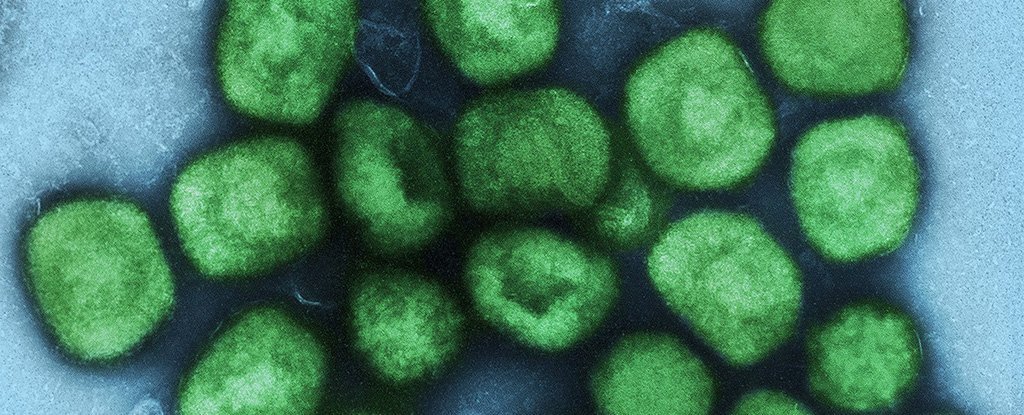The monkeypox virus, which has been reported by the World Health Organization (WHO) to have infected 257 people in 23 countries so far, continues to spread day by day. As panic increases among the public in these days when the effects of the Corona virus pandemic are decreasing, UK scientists have answered questions about the mysterious virus. Here are the answers of infectious disease experts to the most curious questions about monkeypox virus.

While the monkeypox virus continues to spread in various countries of the world, people are afraid of catching the virus in these days when the impact of the coronavirus pandemic is beginning to decrease.
As the mysterious virus envelops the world, the public is alarmed and scientists continue their research on the virus.
- The space helicopter Ingenuity sent to Mars broke records
- The space helicopter Ingenuity sent to Mars broke records
Monkeypox virus, an infection that until recently was largely unheard of outside West and Central Africa, has already been seen in more than 20 countries, while the UK Health Safety Agency says the risk to the general population is low.
“We ask people to be wary of new rashes or lesions that may appear as spots, ulcers or blisters anywhere on their body,” the agency added.
In the news in the Daily Mail, the UK’s most famous infectious disease experts made statements about the monkeypox virus.
Scientists answered the questions about monkeypox virus, “How worried should we be, who is most at risk, and if anything, what should we do to protect ourselves?”
WILL MONKEY FLOWER VIRUS BE LIKE COVID-19?
Asked whether monkeypox cases would become a new coronavirus pandemic on the rapid spread, the scientists said, “Like the virus that causes Covid-19, monkeypox has jumped from animals to humans, but this is the only point where there is a similarity,” while “The general scientific consensus at the moment is that it will not be new, it will not increase in the same way.”
WHY DO WE SEE THE VIRUS EMERGING FROM SOMEWHERE IN VARIOUS COUNTRIES?
Asked why the outbreak was seen in more than 20 countries, the experts said, “No one knows for sure yet, but there are theories. In reality, the threat of monkeypox has been growing for several years. In 2003, there was an outbreak in the United States, and a total of 72 confirmed or suspected cases were recorded in the states of Wisconsin, Illinois and Indiana. “He suggested that the infection was imported through a shipment of exotic animals from Ghana, including prairie dogs and six African rodent species.”
“Nigeria was affected by the outbreak in 2017 with 558 suspected cases, of which 241 have been confirmed to date. “The most popular hypothesis in this regard is that the increase is linked to the decline in the use of the smallpox vaccine, which also provides some protection against monkey disease.”

IS IT A SEXUALLY TRANSMITTED DISEASE?
Asked whether the most talked about Monkeypox virus is sexually transmitted, scientists said, “The primary way monkeypox spreads is not sexual contact like HIV. However, skin-to-skin contact during sexual intercourse can cause transmission if one of the partners has monkeypox lesions.”
Dr. Susan Hopkins, Chief Medical Advisor to the Health Security Agency, an infectious disease epidemiologist, said, “This infection is spread through close contact, and sexual intercourse is definitely close contact. “It has been confirmed that those most affected by this outbreak are those who identify as gay or bisexual, and other men who have sex with men.”
WHAT ARE THE MOST COMMON SYMPTOMS?
The most common symptoms of the scientists are, “Initially, monkeypox causes a flu-like illness: fever, headache, muscle pain, back pain, swollen lymph and fatigue. Within one to five days, a rash appears that usually spreads first to the face, then to other parts of the body, including the genitals,” he explains, adding, “The rash is similar to chickenpox. It starts as fluffy spots that turn into small, fluid-filled blisters. These bubbles eventually turn into falling crusts. The disease can last up to four weeks, but most cases resolve on their own without any treatment.”

WHAT HAPPENS IF A PERSON’S MONKEY FLOWER TEST TURNS OUT TO BE POSITIVE?
“If a person is suspected of having monkeypox, they will be given a PCR test like those made using swabs taken from the skin and throat used for Covid-19,” the scientists said, adding: “There is no specific treatment and the UK’s National Health System (NHS) currently says patients may be advised to stay home until they recover if symptoms are mild.”
“UK Health Safety Agency teams are coming into contact with high-risk contacts of confirmed cases and advising them to isolate for up to 21 days. However, smallpox vaccination may also be recommended to patients.”
IS MONKEY FLOWER VIRUS LETHAL?
Asked whether the monkeypox virus is deadly, infectious disease experts said, “There are two types of monkeypox, and the West African type that is circulating is less lethal. The Central African or Congo Basin virus is more severe. Those with weak immune systems, young children, pregnant women and the elderly are at greater risk,” he said, adding, “For both, mortality rates were set at one percent and ten percent. Severe monkeypox can lead to pneumonia, a serious lung condition and sepsis, a potentially fatal immune system reaction, swelling of the brain, and loss of vision due to damage to the cornea, the transparent lens in front of the eye.”
IS IT MORE DANGEROUS FOR CHILDREN?
As for whether the virus is more dangerous for children, experts say, “According to the very limited information available, the answer is yes. The World Health Organization (WHO) points out that if children are infected, they may be at risk of serious illness as they will likely find it difficult to fight infection due to their less mature immune systems,” says Prof Hunter, “In Africa, monkeypox is most commonly seen in children,” says Prof Hunter: “Children play with wild rodents and then catch the infection. Often the first case in a household is a child who then passes it on to their parents.”
ARE PETS AT RISK?
Asked if the virus would pass to pets, the scientists said, “It probably will. The Ministry of Environment, Food and Rural Affairs is currently drafting guidelines urging people who test positive for the virus to stay away from family dogs and cats for as long as they isolate themselves, if the virus infects the animal and then infects others,” he said, adding, “The main concern is that monkeypox becomes endemic in pets and then infects a large number of people. “The British Veterinary Society said pets have a low risk of harboring the virus, but it makes sense for infected pet owners to avoid them during lockdown.”




